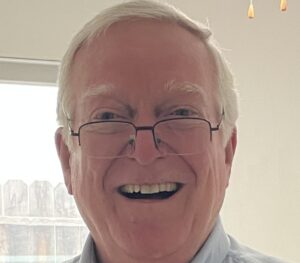 There can be no doubt about it that uncivil discourse has become a sign of our times. Link this to violence targeted against Blacks, Hispanics, Asians, Refugees, and the LBGTQIA community and we have a prescription for just how far we have fallen as a people. Such ugly, deadly targeted violence and harsh judgmental pronouncements are making us mean people. We are witnessing what happens when distrust of one another is bred into the human heart and mind. All hell is breaking loose.
There can be no doubt about it that uncivil discourse has become a sign of our times. Link this to violence targeted against Blacks, Hispanics, Asians, Refugees, and the LBGTQIA community and we have a prescription for just how far we have fallen as a people. Such ugly, deadly targeted violence and harsh judgmental pronouncements are making us mean people. We are witnessing what happens when distrust of one another is bred into the human heart and mind. All hell is breaking loose.
It is my perception that we have tarried too long in deconstruction mode. The result is that our existence thrives on tearing people down people, and our faith in one another is devastatingly eroded. People have become more expendable. Have we lost the ability to build people up and instill faith in one another? What has happened to the teaching to love our neighbors as ourselves?
I am afraid that Jesus’ indictment in the Parable of the Two Sons is ours, “Therefore I tell you, the kingdom of God will be taken away from you and given to a people that produces the fruits of the kingdom” [Matthew 21:43]. Just as Jesus’ indictment to the Two Sons is ours, so is his promise, “Truly I tell you, the tax collectors and prostitutes are going into the kingdom of God ahead of you” [Matthew 21:31]. Jesus teaches that they will go into the kingdom because they witnessed God’s power and believed. For those of us who have witnessed God’s power of liberation, but remain imprisoned by our old prejudices and stereotypes, judgment day is coming.
When Christ calls us to his side, he calls us to die to ourselves and live for him. When he calls us, he calls us to leave behind the old baggage of hate and sin and to take up faith, hope, and love. When he calls us, he calls us to rid ourselves of all that is ugly and to embrace all that is good.
For millennia, the church and its educational programs and institutions have been in the business of nurturing positive change in the human heart. Our 15 Disciples-related colleges and universities, seven seminaries, graduate schools of theology, and divinity houses have educated and prepared students to serve the world and become leaders of society. Our faculties have broken new ground of inquiry leading to knowledge that is useful to all humanity. We must continue to be about growing and learning and becoming better people than we have been– more knowledgeable, more compassionate, and more understanding.
For those of us in church-related institutions, we must continue to navigate ourselves around a Christianity that has become more icing than cake and dig way down to the core of things. Where has the substance of our faith and inquiry gone? We are in danger of contracting spiritual diabetes if we do not feed people healthy religion. The world needs us to put our faith and knowledge into action.
Cherishing civil and open discourse, treating one another with respect and love, embracing diverse thoughts and viewpoints– let those of us who are members and friends of the Christian Church (Disciples of Christ) and lovers of higher education pledge that:
- We will do more than belong, we will participate.
- We will do more than believe, we will practice.
- We will do more than care, we will help.
- We will do more than be fair, we will be kind.
- We will do more than forgive, we will forget.
- We will do more than dream, we will work.
- We will do more than teach, we will inspire.
- We will do more than earn, we will enrich.
- We will do more than give, we will serve.
- We will do more than live, we will grow.
- We will do more than be friendly, we will be a friend.
I once heard a story of an aged, dying father who called his seven daughters around him. He gave each one a stick and said, “Break it.” Each daughter easily broke the stick given to her. The old father then bound seven sticks in a bundle, gave it to his eldest daughter, and said, “Break it.” She could not. Then the second was commanded to try. She could not, and nor could any of the rest. “So,” said the father, “it is to be of you. Alone you are weak; together, you are strong.”
Our church and church-related institutions of higher education must pool our collective wisdom to make this world a healthier, safer place for all the world’s inhabitants. Alone we are weak, together we are strong. We can do it. We must do it. We will do it.
Togetherly yours,
Ron
